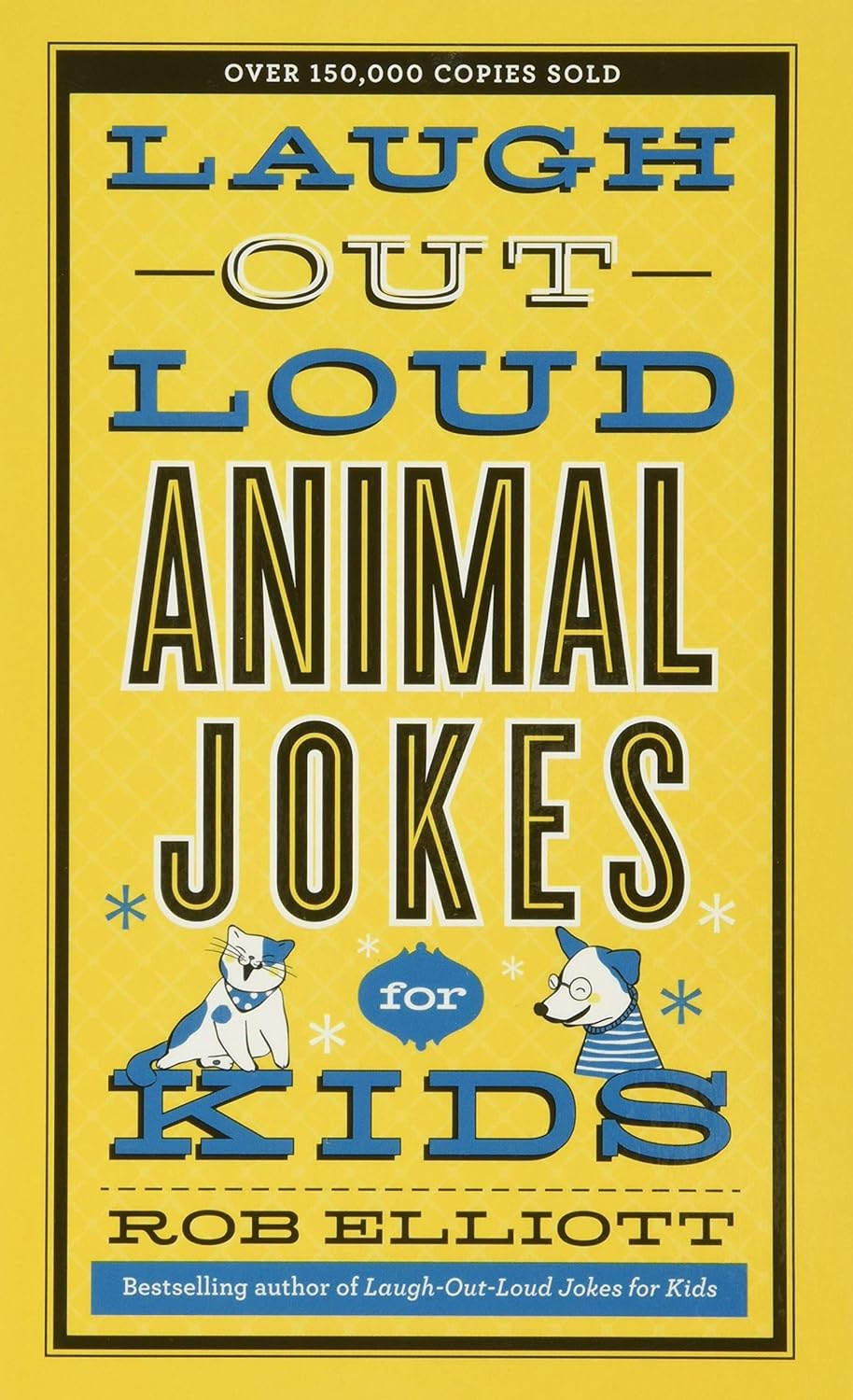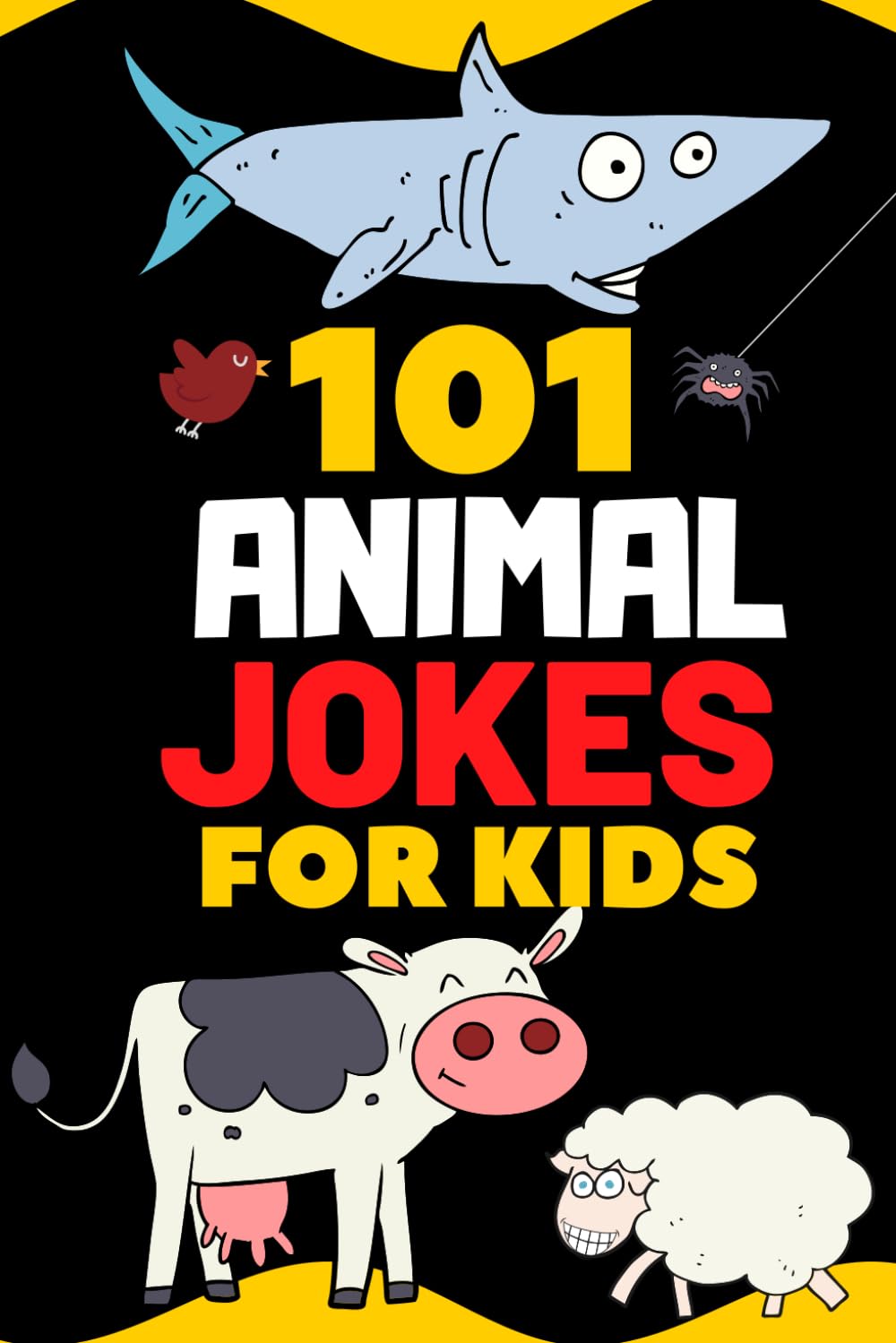Why Animal Jokes Are a Roaring Success with Kids
Unpacking the Developmental Magic of Animal Humor for Kids
The Universal Language of Laughter and Our Furry, Feathered, and Finned Friends
A child's laughter, especially when sparked by a silly joke about a talking dog or a clumsy cow, is a delightful sound. It's a universal expression of joy that bridges age and background. Animal joke books, often filled with puns, riddles, and comical scenarios featuring creatures great and small, are perennial favorites in children's literature. Let's delve into why these jokes are so irresistibly appealing to young minds an explore the rich developmental benefits they offer. Laughter itself is a fundamental part of childhood, serving not only as an expression of happiness but also as a powerful way to connect with others. When this laughter is elicited by the antics of animal characters, a unique kind of developmental magic unfolds ( Children's Minnesota ).
The Irresistible Charm of Animals, The Power of Anthropomorphism & Developing Humor
Children possess a natural inclination towards the fantastical and imaginative, and characters that embody animals with human-like qualities—a concept known as anthropomorphism—tap directly into this innate curiosity (Writing for Children with Karen Cioffi). These characters effectively create a bridge between the familiar world of animals and the extraordinary realm of human thought and behavior. Animal joke books frequently feature animals engaging in human activities, expressing human emotions, or speaking human language, which children find inherently funny and relatable. Anthropomorphism renders these animal characters approachable and engaging, capturing a child's attention and imagination. Indeed, the use of anthropomorphism in children's narratives is a powerful tool for engagement. It serves as an "attention grabber" and is instrumental in "building a relational attitude between the young readers and the fictional characters" (The Face And Phases Of Anthropomorphism In Children's Literature). When animals in jokes think, talk, and act like people, children are provided with a unique lens through which to explore complex social situations, emotions, and ideas. This exploration occurs in a manner that feels safe and non-threatening because the characters are, after all, "just animals". By projecting human scenarios, dilemmas, and absurdities onto animal characters, children can process complex or even slightly taboo subjects—such as silliness, making mistakes, or the social blunders often depicted in jokes—without the direct self-consciousness or anxiety they might experience if the joke were about a human child (Psych Central).
A core element of what makes something funny is incongruity—the deliberate manipulation of contradictory elements that creates a surprising conflict between what is expected and what actually occurs (How humor comes to children). Animal jokes are particularly adept at leveraging incongruity. A classic example, such as an elephant painting its toenails red to hide in a strawberry patch, is hilarious to young children precisely because they understand the inherent "wrongness" or "impossibility" of the scenario. A child's sense of humor is not static; it evolves in tandem with their cognitive development. As children reach around six years of age, the content of their jokes often reflects their engagement with "the intricacies of logical thought and growing facility with language". When a child understands why the elephant's camouflage strategy is flawed, they derive humor from knowing more than the "big elephant," which provides a satisfying sense of mastery (Psych Central). This experience of "getting" an animal joke provides a playful arena for children to affirm their burgeoning understanding of the world.
More Than Giggles: The Developmental Powerhouse of Animal Humor
While the immediate joy of laughter is a clear benefit, animal joke books offer a surprising range of developmental advantages that contribute significantly to a child's growth. These humorous texts serve as more than mere entertainment; they are veritable powerhouses for cognitive, social-emotional, and literacy development.
Cognitive Leaps: Jokes, particularly those involving puns and wordplay, function as "little language lessons disguised as fun" (Poppyseed Play). Humor has a remarkable capacity to help children "see things from many perspectives other than the most obvious," encouraging them to "be spontaneous," and enabling them to "grasp unconventional ideas or ways of thinking" (Children's Minnesota). The mental gymnastics involved in deciphering animal jokes—for instance, holding two conflicting ideas in mind to understand a pun, or grasping the absurd logic behind an animal's comical actions—directly trains cognitive flexibility. This skill is a foundational ability crucial for later academic success.
Social and Emotional Growth: Laughing together is a fundamental way to build and strengthen bonds. Humor is inherently social, and the act of sharing jokes and laughter fortifies relationships, whether between a child and a caregiver or among peers. Animal jokes, due to their often simple and benign nature, provide a relatively safe and structured environment for children to practice crucial social skills. A well-developed sense of humor is a valuable psychological tool that can help children become "smarter, healthier, and better able to cope with challenges" (Children's Minnesota). When children laugh at animal "mistakes," they are engaging with the concept of error in a non-threatening, amusing context. This can translate to a greater acceptance of their own imperfections and a more lighthearted approach to their own errors, fostering emotional resilience and reducing the fear of failure.
Literacy Adventures: The connection between humor and literacy development is significant. Children who read or listen to funny books and genuinely enjoy them are more likely to associate the act of reading with pleasure and fun (Scholastic). For children who are learning to read, the predictable structure and often simpler vocabulary found in many animal joke books can be a significant confidence booster. Successfully decoding the words of a joke and then "getting" the humor provides a tangible reward and a sense of accomplishment. This positive feedback loop, where effort leads to understanding and enjoyment, encourages further reading attempts and helps to build a child's identity as a capable reader (Beanstalk).
Bringing Home the Laughter: Tips for Using Animal Joke Books
Knowing the benefits of animal humor is one thing; effectively incorporating it into a child's life is another. Selecting joke books that align with a child's current developmental stage is crucial. Humor researcher Paul McGhee's stages of humor development offer a useful guide (Laughter Remedy):
- Toddlers (around 2-3 years): At this age, children typically enjoy humor based on simple incongruity, such as misnaming objects or animals making the "wrong" sounds (e.g., a dog saying "quack").
- Preschoolers (4-5 years): Children in this age range may begin to tell short jokes, often involving nonsense words. They might also attempt knock-knock jokes, though the punchlines are frequently incongruous or nonsensical (Talking Talk).
- Early School-Age (6-7+ years): By this stage, children start to understand that words can have multiple meanings, and they begin to appreciate riddles and puns.
Humor is fundamentally a social experience. The benefits of joke books are amplified when they become a shared activity. Read jokes aloud, take turns telling jokes, and try to guess the punchlines together. Importantly, take the time to discuss why a particular joke is funny, especially if a child doesn't initially understand it (Hearing First). After enjoying some animal jokes from a book, encourage children to try making up their own. When children move from simply consuming jokes to creating their own, they are exercising their imagination by inventing clever scenarios and exploring unique perspectives designed to elicit laughter and engage others (Poppyseed Play).
The Last Laugh: The Enduring Value of Animal Humor
The giggles and guffaws sparked by animal joke books are just the beginning. These seemingly simple collections of humorous quips and riddles offer a wealth of lasting benefits that contribute profoundly to a child's overall development and well-being. It is easy to dismiss a joke book as a lighthearted trifle, perhaps "just a stocking filler" (Beanstalk). However, this perspective overlooks the significant developmental work that these books can facilitate. A good sense of humor is not merely a pleasant personality trait; it is a valuable tool that children can rely on throughout their lives to navigate challenges, connect with others, and maintain a positive outlook (Children's Minnesota). Early positive experiences with humor can lay a robust foundation for developing a healthy and beneficial sense of humor that lasts a lifetime. Animal jokes can act as a delightful gateway, making the process of learning and discovery inherently enjoyable and paving the way for more complex forms of literature and intellectual engagement as a child grows.
Our Handpicked Selection of Animal Joke Books
Ready to explore the world of animal humor? Dive into our handpicked selection of animal joke books for kids, designed to spark laughter and learning. Each book is a treasure trove of giggles, perfect for family reading time or as a gift for the young jokester in your life. Each purchase helps support our site through affiliate partnerships.





